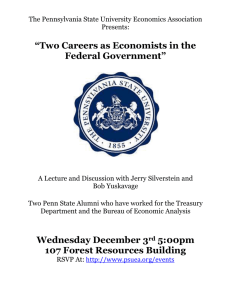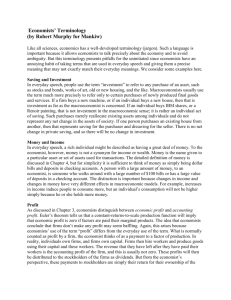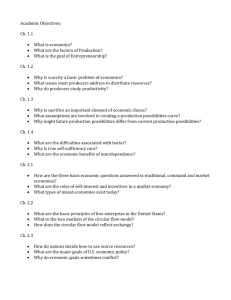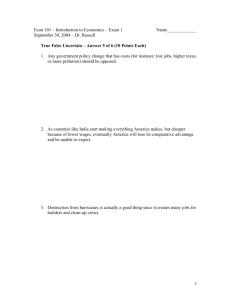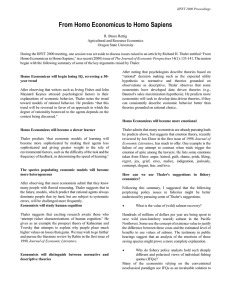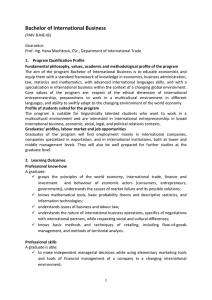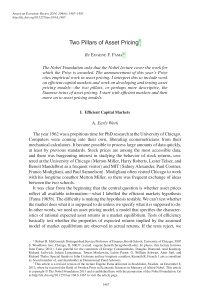Study Guide Questions for the Nova Video Mind Over Money
advertisement
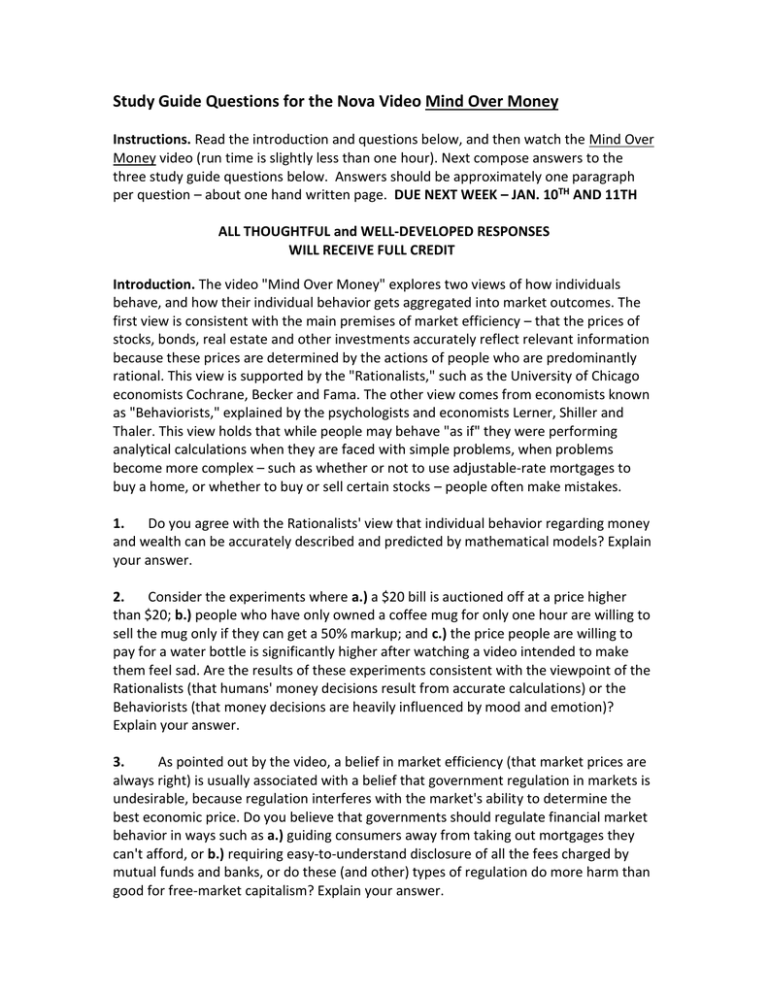
Study Guide Questions for the Nova Video Mind Over Money Instructions. Read the introduction and questions below, and then watch the Mind Over Money video (run time is slightly less than one hour). Next compose answers to the three study guide questions below. Answers should be approximately one paragraph per question – about one hand written page. DUE NEXT WEEK – JAN. 10TH AND 11TH ALL THOUGHTFUL and WELL-DEVELOPED RESPONSES WILL RECEIVE FULL CREDIT Introduction. The video "Mind Over Money" explores two views of how individuals behave, and how their individual behavior gets aggregated into market outcomes. The first view is consistent with the main premises of market efficiency – that the prices of stocks, bonds, real estate and other investments accurately reflect relevant information because these prices are determined by the actions of people who are predominantly rational. This view is supported by the "Rationalists," such as the University of Chicago economists Cochrane, Becker and Fama. The other view comes from economists known as "Behaviorists," explained by the psychologists and economists Lerner, Shiller and Thaler. This view holds that while people may behave "as if" they were performing analytical calculations when they are faced with simple problems, when problems become more complex – such as whether or not to use adjustable‐rate mortgages to buy a home, or whether to buy or sell certain stocks – people often make mistakes. 1. Do you agree with the Rationalists' view that individual behavior regarding money and wealth can be accurately described and predicted by mathematical models? Explain your answer. 2. Consider the experiments where a.) a $20 bill is auctioned off at a price higher than $20; b.) people who have only owned a coffee mug for only one hour are willing to sell the mug only if they can get a 50% markup; and c.) the price people are willing to pay for a water bottle is significantly higher after watching a video intended to make them feel sad. Are the results of these experiments consistent with the viewpoint of the Rationalists (that humans' money decisions result from accurate calculations) or the Behaviorists (that money decisions are heavily influenced by mood and emotion)? Explain your answer. 3. As pointed out by the video, a belief in market efficiency (that market prices are always right) is usually associated with a belief that government regulation in markets is undesirable, because regulation interferes with the market's ability to determine the best economic price. Do you believe that governments should regulate financial market behavior in ways such as a.) guiding consumers away from taking out mortgages they can't afford, or b.) requiring easy‐to‐understand disclosure of all the fees charged by mutual funds and banks, or do these (and other) types of regulation do more harm than good for free‐market capitalism? Explain your answer.


